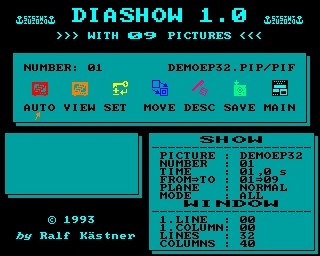CFOG's PIP, April 1990, Volume 9 No. 2, Whole No. 74, page 12
Mega-Capacity 3.5 Inch Drives
We'll soon be seeing 3.5 inch floppy disk drives with capacities in excess of 20 Megabytes, but already on the market is at least one 2.88 Mb capacity drive, from MicroSolutions, the gang who brought you UniForm. I have already seen an announcement of another. The system includes a CompatiCard IV, the 2.88 Mb drive, and the cable. Power for the drive is drawn from the interface, so it doesn't have a power cord, but you'll need enough power supply to run the drive. I understand that disks for this beast are $6.50 currently, but are expected to come down significantly in price as supplies come onto the market.
The CompatiCard IV can be used as your primary or secondary controller on any PC, XT, AT, or 386, supports 3.5, 5.25, and 8 inch drives, supports 4 drives (2 of which may be external), and comes with proprietary software to format disks in background. Data transfer rates supported are 250, 300, 500, and 1 Kbps, it has on board ROM BIOS, will autoboot from any drive, includes three hardware selectable DMA channels and six hardware selectable interrupt levels, and has pin 2 and 6 density control.
Other products from MicroSolutions include Overdrive (to add external 5.25 inch drives to PC, XT, AT, or PS/2 models), Uniform-PC (to read over 350 CP/M and 'DOS formats), Matchpoint (to read Apple DOS, PRODOS, and SOS disks, Apple Softcard and NortStar hardsectored formats (Advantage, Horizon and TurboDOS), Matchmaker (to read Macintosh disks on PC, XT, AT), and UNIDOS (to run CP/M software on your 'DOS machine).
Available from Elliam Associates, 805-466-8440.
CFOG's PIP, April 1990, Volume 9 No. 2, Whole No. 74, page 12
Humidity: Good for Computers
[The following article appeared in the Northwestern University Perspective, a magazine for alumni, which carries no copyright notice.]
Researchers at Northwestern [University] have discovered that high humidity is actually safer for computer hard disk files than the usually touted cool, dry place.
The researchers tested hard disk storage systems in a vacuum, dry air, and air with 50 percent relative humidity by simulating stops and starts in all three environments. According to principal investigator Yip-Wah Chung, professor of materials science and engineering and director of the Center for Engineering Tribology humid conditions permitted five times as many starts and stops as dry conditions, and 50 times as many as the tests in a vacuum. Wear particles formed by the scraping of the magnetic head against the disk were oxidized in humid conditions. The oxidation gave the particles lower surface energy and they remained smaller. In dry conditions the particles were substantially larger and eventually caused system failures. The researchers noted that the conclusion applies only to hard disk systems in continous operation.
The research was presented at the American Society of Mechanical Engineers Tribology Conference last October.
[Tribology is "the branch of science and technology concerned with interacting surfaces in relative motion and with associated matters (as friction, wear, lubrication, and the design of bearings)." IV Oxford English Dictionary Supplement (1986). -- bhc]

